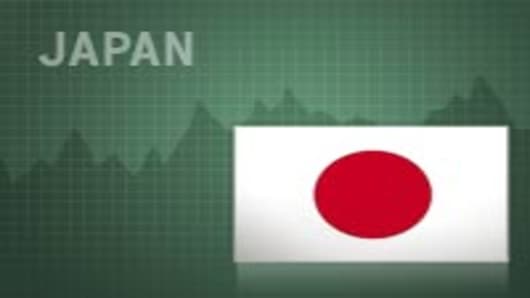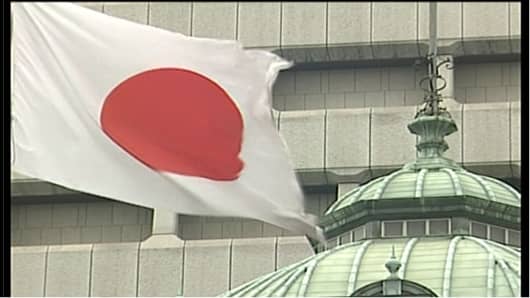Japanese annual wholesale inflation hit a 27-year high in March, squeezing businesses as they struggle to pass on higher prices for fuel and other raw materials to their customers.
The rising costs, only partly reflected so far in consumer inflation, are also posing problems for the Bank of Japan, which must manage inflation but faces pressure to cut interest rates in the face of the global credit crisis.
The 3.9 percent rise in the corporate goods price index in March from a year earlier is almost four times the most recent core consumer inflation figure of 1.0 percent in the year to February -- showing the difficulty businesses have in raising prices in Japan's sluggish domestic economy.
"The rise in wholesale prices is unlikely to stop here, given that raw material prices are still rising," said Hiroshi Shiraishi, an economist at Lehman Brothers. "We think the BOJ is unlikely to cut rates. But if the world's economy deteriorates further, the bank may do so." BOJ Governor Masaaki Shirakawa, in Washington for a G7 meeting, called on the Group of Seven rich nations to show a clear determination to ensure stability in the financial system.
The fear is that rising inflation in Japan will coincide with sluggish exports as the U.S. economy slows in the wake of the U.S. subprime housing problems, potentially tipping the world's second-largest economy into recession.
Domestic final consumer goods prices, which economists say loosely track consumer prices, rose 1.4 percent in March from a year earlier, the Bank of Japan reported.
The wholesale price increase was higher than the 3.5 percent increase markets had expected and is the biggest annual increase since a 5.7 percent rise in the year to February 1981 -- in the aftermath of the oil crisis.
Financial markets are focusing on the flagging U.S. economy but rising costs and slack domestic demand bode ill for the Japanese economy.
"Prices of electrical machinery, precision instruments and electronic components and devices are falling, showing that the impact of rises in wholesale prices affecting consumer prices is still weak," said Kiichi Murashima, an economist at Nikko Citigroup.
High energy and raw materials prices have dampened corporate sentiment in Japan and prompted the central bank to warn of slowing growth in the world's second-biggest economy.
The BOJ downgraded the view on the economy in its monthly report on Wednesday, dropping a reference to the economy expanding, a phrase it had used in reports for nearly two years.
The bank's tankan corporate survey also showed global credit woes, high raw material costs and tumbling stock markets have sent Japanese corporate sentiment to a four-year low.
The deteriorating mood and slowing corporate activity cast more clouds over the BOJ's scenario for corporate strength to spill over to households.
Lack of pricing power squeezes profit margins particularly at small firms, which employ seven out of 10 Japanese workers, and keeps them from raising salaries for employees.
That could keep a lid on Japan's already sluggish household spending as salaried workers cannot expect wages to grow much yet they face rising prices at supermarkets on items ranging from bread and milk to noodles and beer.
The BOJ kept rates unchanged at 0.5 percent in a review on Wednesday in the face of growing uncertainty at home and overseas.
It has left rates steady for more than a year, and investors are increasingly inclined to agree.
Swap contracts on the overnight call rate, the BOJ's main policy rate, are pricing in around a 10 percent chance of a rate cut by June and a 30 percent chance by the end of the year.
They had been showing a 55 percent chance of a rate cut last week.



